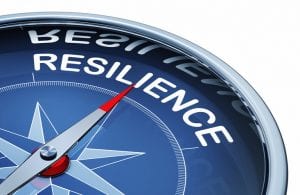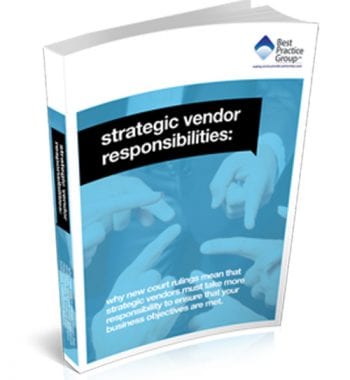 They say that in a crisis you find out who you really are. In fact, US founding father, Thomas Paine said it far more eloquently than that in 1776 when he wrote: “These are the times that try men’s souls. The summer soldier and the sunshine patriot will, in this crisis, shrink from the service of their country; but he that stands by it now, deserves the love and thanks of man and woman. Tyranny, like hell, is not easily conquered; yet we have this consolation with us, that the harder the conflict, the more glorious the triumph. What we obtain too cheap, we esteem too lightly: it is dearness only that gives every thing its value.”
They say that in a crisis you find out who you really are. In fact, US founding father, Thomas Paine said it far more eloquently than that in 1776 when he wrote: “These are the times that try men’s souls. The summer soldier and the sunshine patriot will, in this crisis, shrink from the service of their country; but he that stands by it now, deserves the love and thanks of man and woman. Tyranny, like hell, is not easily conquered; yet we have this consolation with us, that the harder the conflict, the more glorious the triumph. What we obtain too cheap, we esteem too lightly: it is dearness only that gives every thing its value.”
It was an entirely different conflict and time, but the essence of what he was conveying is that tough times show us our true selves and that what we win through adversity is often stronger than anything else. And this is something that a number of organisations have been doing throughout our current crisis in their relationships with their suppliers.
Rather than taking the easy road of prioritising short-term self-interest, many, it seems, have been taking the more challenging path of supporting their struggling suppliers, to prop them up and, for the first time for some, to truly treat them as collaborative partners.
A report co-produced by the Association for Supply Chain Management and the intelligence unit of The Economist magazine titled ‘The Resilient Supply Chain Benchmark: Ready for Anything? Turbulence and the resilience imperative’ has been published earlier this year. It surveyed the actions and perceptions of 308 publicly listed organisations to see how their relationships with suppliers had faired throughout the Covid-19 pandemic. The results of this survey make for interesting reading.
The report highlighted a number of anxieties, such as cyberattacks, raw material disruption and environmental issues, as well as the possibility of multiple threats occurring simultaneously.
One of the primary messages to come out of the report was that: “Companies are building strategic supply chain resilience by forging strong long-term relationships with key suppliers and customers.”
Developing true partnerships includes sharing best practices, long-term planning, determining technological capabilities to maintain a decent level of production and innovation, and providing support to keep struggling suppliers solvent in times of commercial trauma.
- 9% of the organisations had intervened in some way to help their suppliers through this challenging period.
- 80% of consumer electronics organisations valued at over £1bn in the survey had supported their suppliers directly during the pandemic.
- 39% of consumer electronics organisations believed that their suppliers going out of business would severely impact their own supply chain, with 29.9% in the pharmaceutical sector and 26.7% in the retail sector agreeing with them.
All of this shows a broad market recognition of suppliers and clients no longer considering themselves as individual entities, but part of a larger and connected ecosystem. If one fails, all fail.
It may have taken a pandemic for this to have registered at such a scale in the market, but the fact that it has is a good thing as it offers an opportunity for more collaborative partnerships to flourish.
The report’s conclusion suggested a number of actions to position companies on more stable ground: “These include achieving deeper visibility through more increased integration of suppliers into systems and activities, data governance and data exchange protocols, proactive collaboration to improve the credibility of sustainability and emissions initiatives, and stronger engagement between supply chain managers and executive leadership.”
Building greater resilience into your supplier relationships
There are a number of ways in which you can adapt your approach to your supplier relationships to rapidly shift them towards being more collaborative.
-
- When challenges arise, try to collaborate rather than confront
The argument over who is responsible for things going wrong or who should fix them is likely to be time-consuming and relationship damaging. As your goal is to get back to BAU as quickly as possible, debate and blame are actually factors standing in your way of this happening. True partners identify the problem and work together to fix it. Only once BAU has been re-established should an investigation take place to determine where responsibility lies, primarily for the lessons learned benefits, but also so that costs can be fairly shared. Remember, fix first, argue later.
-
- Maintain a critical analysis record of all things good and bad
Most client-supplier relationships will hit bumpy periods at some point in their evolution, even when Covid-19 is not in the mix. When this happens it would be standard for parties to keep a detailed record of what has gone wrong and where their strategic partner has failed in their responsibilities so this information can be used as logical justification for contractual recourse, should such an extreme measure be considered necessary.
However, truly collaborative relationships exist where parties take a more holistic view, identifying things that have gone well as well as things that have not, so all parties can learn from the experience to improve processes and checks so that when the next challenge hits – and it will – you will both be better prepared to weather the storm.
-
- A challenge offers us an opportunity to show our mettle
As mentioned above, when times are bad, do you take the easy road of self-interest or the harder path of greater collaboration – the ‘we’re in this together’ attitude which brings strategic partnerships closer together and fosters greater trust and realigned goals. Lead the way in reaching out to your suppliers to prove your collaborative intent.
-
- Take a clean slate approach to troubled relationships
If you believe that your troubled supplier relationship is worthy of saving then it’s important to be able to genuinely draw a line in the sand, albeit keeping track of any material challenges with the service. If you believe that the supplier is capable of better, then advance commercial trust and treat them accordingly. This is, of course, after you have set out, in a wholly constructive way, what caused the stresses in your relationship alongside suggestions on how things could be better going forward.
-
- Trust begets trust, lead the way
When a challenging environment has meant that one party has let the other one down, trust issues are likely to have built up on both sides. Therefore, for the relationship to be steered back on course someone needs to lead the way, to prove that they are worthy of trust themselves so that the other party will have the confidence to do the same. Take the lead, do something material to evidence your trustworthiness and you will find your supplier far more amenable to reciprocate your action.
-
- Don’t just be clear, make sure you’ve been understood
Ambiguity is the enemy of trust. The more opportunity you offer for someone to misunderstand what you have said or asked of them, the more likely they will not perform to your expected standards or deliver expected outcomes. Clarity is not something that can be assumed to be communicated: it is something that must be verified. Take special care to analyse your communications and documentation for any ambiguity and check that your supplier fully understands what you mean.
Conclusion
The Association for Supply Chain Management and the survey from The Economist Intelligence Unit offers us some hope, because it aligns with our own evidence that forward-thinking organisations are leading the way in supporting their suppliers during the pandemic, building stronger, closer, more collaborative relationships. This can only be good for clients and suppliers as stronger client-supplier partnerships will lead to better outcomes.
The six action points noted are evidenced from supplier partnerships that work really well. If implemented correctly, they are likely to offer a closer partnership with your supplier and give you the means for building stronger foundations to your relationship so it will thrive in good times and bad.

